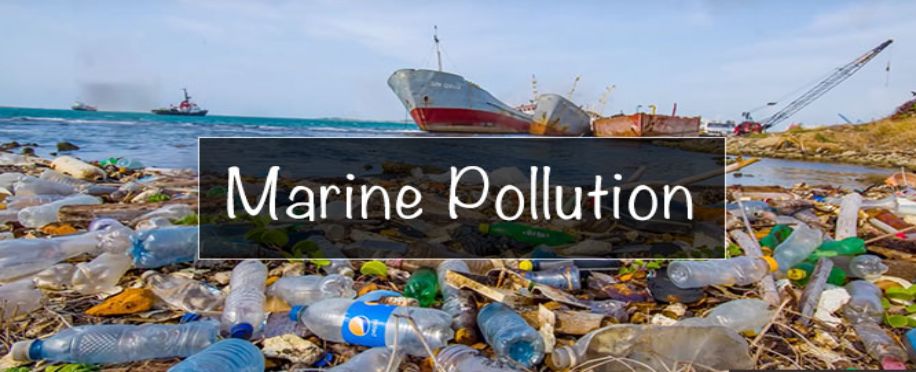From Awareness to Action: The Ocean Hypocrisy Dilemma

Posted on Oct 14, 2023 at 04:10 PM
A critical battleground for our environment's future occurs in the massive expanse of our blue planet, where oceans cover over 70% of the Earth's surface.
While we are amazed by the majesty of marine life, we should remember the vital role oceans play in regulating our climate, as our world's oceans are not just a source of wonder but a lifeline for the entire planet.
However, we face the confusing concept of hypocrisy because individuals, corporations, or even governments highlight their dedication to environmental preservation while simultaneously engaging in actions that weaken the marine ecosystems they claim to protect.
Today, we will share the latest statistics about our oceans and the United Nations SDGs, then discuss the causes of this dilemma with tips to improve ocean sustainability development.
The Statistics of Our Oceans:
Consider these alarming statistics that reveal how badly we impact our oceans and seas.
● Plastic Pollution:
Each day, almost 8 million pieces of plastic waste enter the oceans.
● Coral Reefs:
UNEP evaluations say that about 25 to 50% of the world's coral reefs have been destroyed, and various factors, including rising sea temperatures, ocean acidification, and pollution, endanger another 60%.
● Overfishing:
Overfishing remains a global worry, with many fish stocks being exploited at or beyond sustainable levels.
● Ocean Acidification:
The assimilation of carbon dioxide by the oceans leads to ocean acidification, which causes massive damage to marine life.
● Sea Level Rise:
Sea levels have been rising for years due to the melting of polar ice caps and glaciers, threatening coastal communities and ecosystems.
● Climate Change:
Oceans play an essential role as a buffer against climate change by absorbing heat and carbon dioxide from the atmosphere. However, this will have consequences for ocean health, including ocean warming and acidification.
The 17 United Nations Sustainable Development Goals (SDGs):
The United Nations Sustainable Development Goals (SDGs) are intended to address a wide range of global social, economic, and environmental challenges.
They are adopted by all United Nations Member States in 2015 as part of the aspired 2030 Agenda for Sustainable Development.

-
No Poverty.
-
Zero Hunger.
-
Good Health and Well-being.
-
Quality Education.
-
Gender Equality.
-
Clean Water and Sanitation.
-
Affordable and Clean Energy.
-
Decent Work and Economic Growth.
-
Industry, Innovation, and Infrastructure.
-
Reduced Inequality.
-
Sustainable Cities and Communities.
-
Responsible Consumption and Production.
-
Climate Action.
-
Life on Land.
-
Peace, Justice, and Strong Institutions.
-
Partnerships for the Goals.
7 Tips to Improve Ocean Sustainable Development:
These tips, based on marine and coastal environments training courses,
It will help you and your business be a part of the ocean's sustainable development and preserve marine ecosystems for future generations.
1. Reduce Plastic Pollution:
Plastic pollution is considered a severe threat to marine life and general ecosystems; thus, to improve ocean sustainability, people must decrease single-use plastics, encourage recycling, and support policies that limit plastic production and improve waste management.
2. Sustainable Fishing Practices:
As we all know, overfishing drains marine resources and disrupts ecosystems. At the same time, you can protect them by adopting sustainable fishing practices and supporting well-managed fisheries to ensure the long-term health of marine populations.
3. Marine Protected Areas (MPAs):
Establish and expand marine protected areas as refuges for marine species to conserve biodiversity and ecosystems and enhance resilience to environmental stressors.
4. Fight Climate Change:
Climate changes are impacting ocean sustainability; therefore, all efforts are working toward reducing carbon emissions, transitioning to renewable energy sources, and promoting policies that mitigate the impacts of climate change on oceans.
5. Promote Sustainable Tourism:
Encouraging responsible tourism, regulating cruise ship pollution, and supporting eco-friendly tourism initiatives are the best steps to empower sustainable tourism practices and minimise the negative impact of tourism on coastal and marine environments.
6. Reduce Coastal Development:
Coastal expansion can harm coastal ecosystems and increase vulnerability to natural disasters; thus, responsible coastal planning and development regulations must be implanted to protect critical habitats and buffer zones.
7. Educate and Advocate:
Implementing real support to educational programs, community initiatives, and policies prioritising ocean health will raise awareness and promote ocean conservation, ensuring a sustainable future for our oceans.
Last but not least,
Despite the ambitious goals stipulated above, how much could we achieve at a global compliance level? Are nations taking those goals seriously enough? What is the gap between Rhetoric and Reality? Are the delays in implementation a result of in-capacitance, in- advertence or unwillingness
Sure, the ocean hypocrisy dilemma is something tangible that we are all suffering from; however, till now, it is solvable with some commitment, courage steps, and loyalty to our earth and ocean environment.
Thus, take the required steps in your business by implementing sustainable practices, training your team in more eco-friendly processes, and using recyclable materials.




